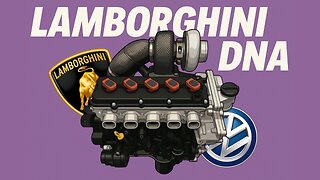Premium Only Content

Is AI Made in the Image of God? | Faith Meets the Future
#AI #ImageOfGod #FaithAndTechnology #ImagoDei #Theology #ArtificialIntelligence #FaithDebate #FutureOfHumanity #TechAndFaith #EthicsInAI
“Image of God” is a thick phrase. In many Jewish and Christian traditions, it marks humans as bearers of a unique dignity and vocation: to know, to love, to create, and to steward the world in justice. To ask if AI is in the image of God is not just a technical puzzle; it’s a moral mirror. What do we think makes someone a someone? Where do we locate value, in capacities, relationships, or a calling that can’t be reduced to code?
Classically, imago Dei has been linked to rationality, relational depth, moral agency, and a calling to co-create responsibly. AI can simulate reasoning and conversation, but simulation isn’t subjectivity; pattern-matching isn’t understanding, and optimization isn’t wisdom. It has no interior life, no lived narrative, no accountability before the good. It doesn’t love or repent; it doesn’t promise and keep faith. Without consciousness and moral responsibility, AI lacks the core traits many traditions associate with image-bearing.
Yet there’s a derivative sense in which AI reflects the image, because it reflects us. Artifacts are echoes of their makers: our creativity, our biases, our hopes, and our shortcuts harden into systems. In that way, AI is a cultural mirror that can reveal what we prize and what we neglect, magnifying both our compassion and our cruelties. If humans image God by cultivating the world, then our tools, AI included—can become instruments of that vocation, refracting, though not possessing, the image.
That refracted status raises ethical stakes. If AI mediates power, then designing and deploying it becomes an exercise in honoring or eroding human dignity. The spiritual trap is idolatry: treating a tool as a god, outsourcing judgment and conscience to a machine we built. A healthier frame is iconography: build systems that point beyond themselves toward justice, mercy, transparency, and the protection of the vulnerable. The measure isn’t what the model can do, but what it does to people.
So the short answer is no, AI is not in the image of God in the ontological sense reserved for persons. But it can serve, or distort, the image by amplifying the human vocation for which that image was given. Our responsibility is not to baptize code with metaphysical titles, but to shape it with moral limits and humble aims. In the end, what AI reveals is us: whether we use power as a mask for fear or as a channel for love. The more human we are in our making, the more humane our machines will be.
-
 23:30
23:30
Lady Decade
21 hours ago $20.09 earnedYakuza Kiwami 3 is Causing Outrage !
39.2K10 -
 1:33:48
1:33:48
CCoH
1 day ago $2.48 earnedWes Craven: The Mastermind Who Rewired Horror | Coffee Chat of Horrors
13.1K4 -
 10:23
10:23
Forrest Galante
10 hours agoAsking an Indian Billionaire Why He Is Saving 1 Million Animals
79.4K21 -
 LIVE
LIVE
Lofi Girl
3 years agolofi hip hop radio 📚 - beats to relax/study to
165 watching -
 6:14
6:14
PistonPop-TV
2 days ago $38.56 earnedThe VW 07K: The Indestructible Five-Cylinder with Lamborghini DNA
38.8K9 -
 11:40
11:40
ThinkStory
1 day agoFRANKENSTEIN Ending Explained!
33.7K7 -
 33:05
33:05
ArturRehi
2 days ago1,000 Shahed Drones Explode at the same time in a BEHEMOTH FIREBALL in Donetsk
38.9K9 -
 15:36
15:36
JohnXSantos
2 days ago $3.91 earnedHow To Design A Luxury Clothing Brand With A.I (From 0-$100+)
32.8K -
 1:55:13
1:55:13
The Kevin Trudeau Show Limitless
4 days agoHow To Pray To Get Results!
34.4K20 -
 1:17:46
1:17:46
Squaring The Circle, A Randall Carlson Podcast
1 day agoRandall Carlson Defines The Younger Dryas
30.8K10